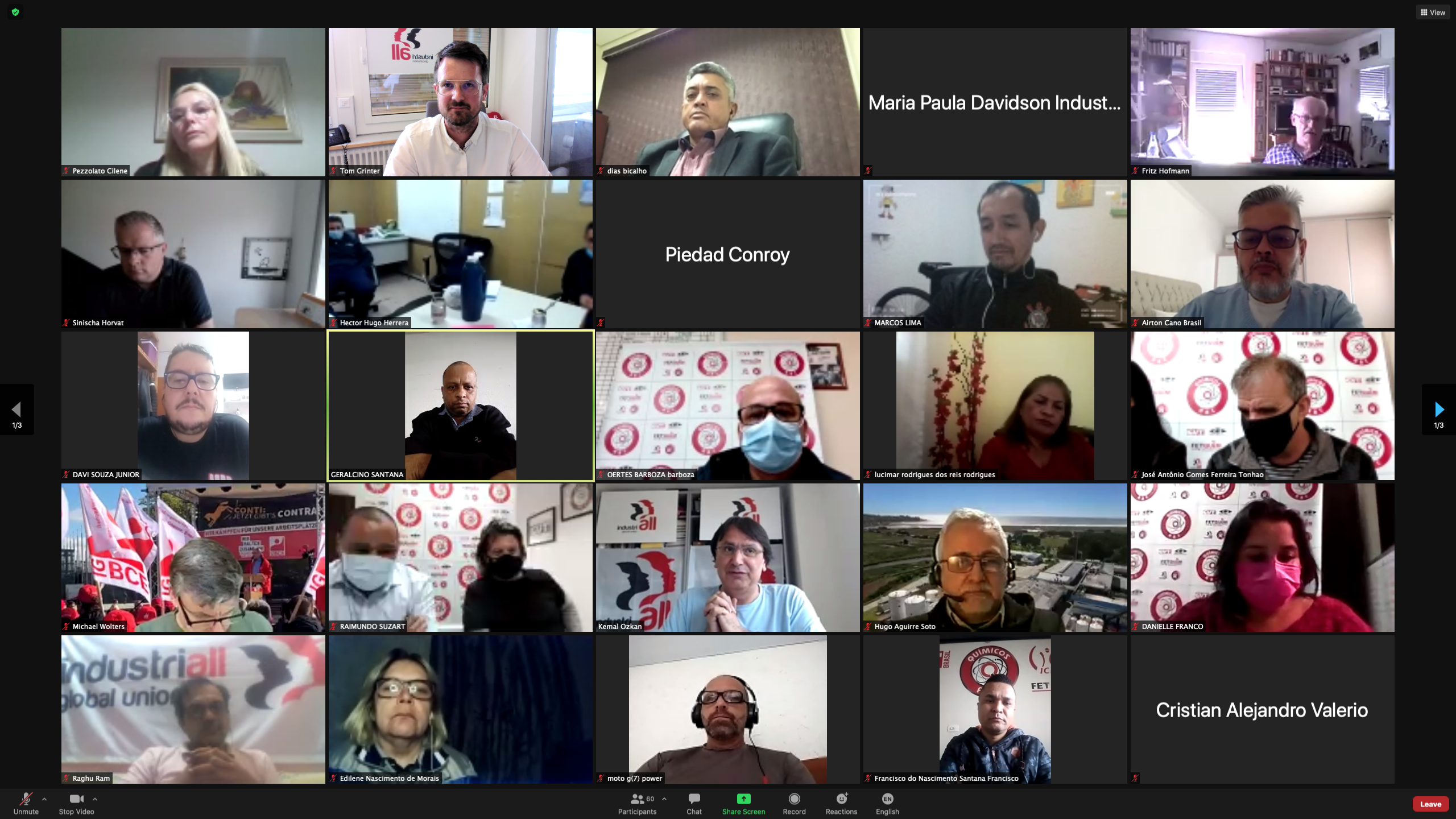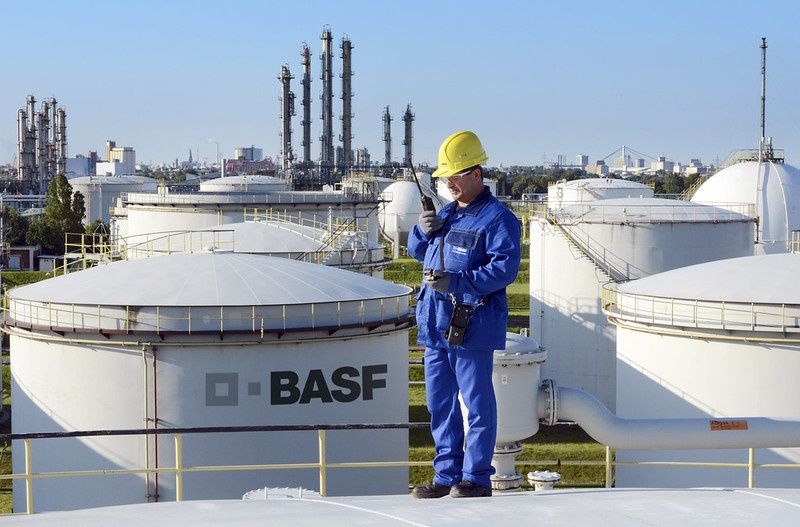Read this article in:
English
- Español
22 June, 2021The unionized employees of BASF around the world are continuing their joint effort to act as one. The goal of the large group is to be recognized by their employer as one social partner. The ongoing effort made progress through a series of union meetings in June.

BASF is the largest chemical company in the world. Headquartered in Germany, its operations in each continent are run by trade union members of IndustriALL affiliates. On 16 June three major international BASF union meetings were conducted, analyzing the current situation of the company, and union relations at global level and in each country of Asia and Latin America.
Conducted within the continuing strategic partnership between IndustriALL and the Friedrich Ebert Stiftung, the three meetings brought together 70 trade union leaders from 12 countries to meet as the Asia BASF Union Network, the Latin America BASF Union Network, and the Regional Coordinators Meeting. Important to all three meetings was the participation of the IG BCE and the head of the BASF Works Council in Germany.
Kemal Özkan, IndustriALL Global Union assistant general secretary, reported on IndustriALL’s political work inside the ILO demanding that the recovery from the pandemic be based on social protection, social dialogue and rights; on the campaign for Occupational Safety and Health to be recognized as a fundamental worker’s right; and on the campaign for the Future of Work to be built on good jobs.
The importance of dialogue with the employer was underlined in the meeting, as key union concerns raised included: insufficient dialogue with unions during merger and acquisition processes in both regions; unclarity on the company position regarding Covid-19 vaccines and occupational hazard classification for Covid deaths.
Concerns were raised in India where plant management has reacted to the pandemic with increased use of precarious contract workers. This causes safety concerns, as well as union rights concerns.
In both Asia and Latin America, unions are repeatedly told by management that decisions are made in the company’s home country, Germany, and local partners have no access to those processes. A contentious example of this is the profit sharing / annual bonus payments, which is a priority issue for employees in Latin America.
Extensive discussions were held on the issues of new technologies at work, on PPE, wages, telework conditions, Covid-19 measures taken, effects of restructuring in Argentina, Chile, Peru, India, and Indonesia, and elsewhere.
Latin America BASF Union Network Coordinator Fábio Lins said:
“We were unhappy with the BASF restructuring in our region, done without proper worker consultation. We want Argentinian jobs guaranteed for those colleagues who have contributed so much to the company. If redundancies are totally unavoidable then our colleagues must receive proper compensation.”
Asia BASF Union Network Coordinator Raghuram said:
“Our network sends the strong message to Headquarters management that the Asian BASF Union Network must be recognized. Workers in this region have contributed much, including during the pandemic when we have all worked hard. While we are socially distanced, there is no distance between the hearts of all BASF workers.”
Sinischa Horvat, Chairman of the German BASF Works Council, said:
“Our company can have a functioning, recognized global union network, as those that exist in other German multinational companies. Let’s all work towards that goal together.”
Tom Grinter, IndustriALL chemicals director said:
“This group of committed trade unionists are at such a high level in terms of professionalism, action on the key topics, understanding of the mega-trends and international union tools. The company will benefit considerably when the Asian and global BASF Union Networks are recognized as official social partners by management.”
Photo: CC BASF. Tank storage facility at BASF in Ludwigshafen.
